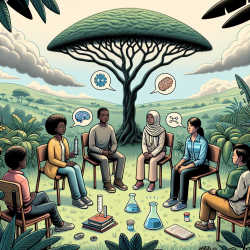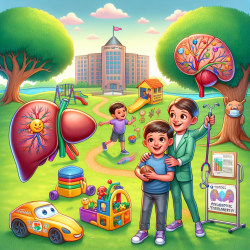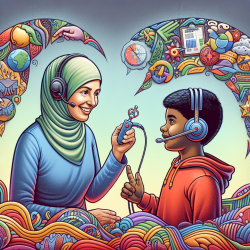Introduction
In the dynamic field of mental health care, practitioners constantly seek effective strategies to address the multifaceted needs of their patients. A recent study titled "Implementing combined WHO mhGAP and adapted group interpersonal psychotherapy to address depression and mental health needs of pregnant adolescents in Kenyan primary health care settings (INSPIRE)" offers valuable insights into enhancing mental health services for adolescents. This blog explores the study's outcomes and encourages practitioners to integrate these findings into their practice or delve deeper into related research.
Understanding the Study
The INSPIRE study, conducted in Kenyan primary health care settings, aimed to address the mental health needs of pregnant adolescents by implementing a combined approach of the World Health Organization's Mental Health Gap Action Programme (mhGAP) and adapted Group Interpersonal Psychotherapy (IPT-G). The study's primary objective was to test the feasibility of this integrated model and assess its impact on adolescent mental health and family functioning.
Key Findings
The study highlighted several critical findings:
- The integrated mhGAP/IPT-G model showed promising results in improving mental health outcomes among pregnant adolescents.
- Both the full and mini versions of IPT-G were effective, with the mini version offering a more feasible option in resource-limited settings.
- Engagement with local stakeholders and adaptation to cultural contexts were crucial for successful implementation.
Implications for Practitioners
Practitioners can leverage these findings to enhance their skills and service delivery in several ways:
- Adopt Integrated Models: Consider implementing integrated mental health care models like mhGAP/IPT-G to address complex mental health needs effectively.
- Focus on Feasibility: Evaluate the feasibility of interventions in your specific context, considering resource availability and cultural factors.
- Engage Stakeholders: Collaborate with local stakeholders to ensure interventions are culturally relevant and sustainable.
- Explore Mini Versions: Utilize mini versions of interventions where resources are limited, ensuring broader reach and impact.
Encouraging Further Research
While the INSPIRE study provides a robust foundation, further research is needed to refine and expand these interventions. Practitioners are encouraged to explore the following areas:
- Investigate the long-term impacts of mhGAP/IPT-G on adolescent mental health.
- Explore the scalability of these interventions in different cultural and resource settings.
- Examine the role of technology in enhancing the delivery and accessibility of mental health services.
Conclusion
The integration of WHO mhGAP and adapted Group Interpersonal Psychotherapy presents a promising approach to addressing adolescent mental health needs. By adopting these strategies and engaging in further research, practitioners can significantly enhance their skills and contribute to improving mental health outcomes for adolescents globally.
To read the original research paper, please follow this link: Implementing combined WHO mhGAP and adapted group interpersonal psychotherapy to address depression and mental health needs of pregnant adolescents in Kenyan primary health care settings (INSPIRE): a study protocol for pilot feasibility trial of the inte.










